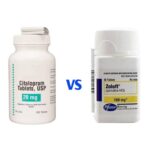How Long Can You Stay On Citalopram?

What is citalopram?
Citalopram oral tablet and oral solution is a prescription drug that’s available as the brand-name drug Celexa. It’s also available as a generic drug. Generic drugs usually cost less. In some cases, they may not be available in every strength or form as the brand-name version.
Citalopram is used to treat depression. It may be used as part of a combination therapy. This means you may need to take it with other medications.
How citalopram (Celexa) works
Citalopram is part of the antidepressant drug class called selective serotonin reuptake inhibitors (SSRIs). A class of drugs is a group of medications that work in a similar way. These drugs are often used to treat similar conditions. SSRIs act in your brain to increase levels of a substance called serotonin. Having more serotonin in your brain can improve symptoms of depression.
How Long Does It Take For Citalopram (Celexa) To Work?
Sleep, energy, or appetite may show some improvement within the first 1-2 weeks. Improvement in these physical symptoms can be an important early signal that the medication is working. Depressed mood and lack of interest in activities may need up to 6-8 weeks to fully improve.
How Should I Take Citalopram?
Citalopram is usually taken one time per day with or without food. Typically, patients begin at a low dose of medicine and the dose is increased slowly over several weeks.
The dose usually ranges from 20 mg to 40 mg once daily. For patients older than 60 years, the maximum recommended dose is 20 mg once daily. Only your health care provider can determine the correct dose for you.
The liquid should be measured with a dosing spoon or oral syringe which you can get from your pharmacy.
If you are taking citalopram, you should not take other medications that include escitalopram (Lexapro®).
Consider using a calendar, pillbox, alarm clock, or cell phone alert to help you remember to take your medication. You may also ask a family member or friend to remind you or check in with you to be sure you are taking your medication.
What Happens If I Miss A Dose Of Citalopram?
If you miss a dose of citalopram, take it as soon as you remember, unless it is closer to the time of your next dose. Discuss this with your health care provider. Do not double your next dose or take more than what is prescribed.
What Should I Avoid While Taking Citalopram?
Avoid drinking alcohol or using illegal drugs while you are taking antidepressant medications. They may decrease the benefits (e.g., worsen your condition) and increase adverse effects (e.g., sedation) of the medication.
What Happens If I Overdose With Citalopram?
If an overdose occurs, call your doctor or 911. You may need urgent medical care. You may also contact the poison control center at 1-800-222-1222. A specific treatment to reverse the effects of citalopram does not exist.
How long can you stay on citalopram?
Previous studies have shown that taking antidepressants like Citalopram for more than 6 weeks can cause withdrawal symptoms on tapering or stopping the drug but new research suggests that a very slow taper (lasting several months) that continues well beyond therapeutic levels may help successfully manage withdrawal symptoms.
Nevertheless, the long-term use of citalopram is safe and to date, there are no known problems associated with long-term use of citalopram as it remains an effective medication when used as directed.
What side effects can this medication cause?
Citalopram may cause side effects. Tell your doctor if any of these symptoms are severe or do not go away:
• changes in sex drive or ability
• constipation
• decreased appetite
• diarrhea
• dry mouth
• excessive tiredness
• frequent urination
• heartburn
• heavy menstrual periods
• muscle or joint pain
• nausea
• stomach pain
• uncontrollable shaking of a part of the body
• vomiting
• weakness
• weight loss
• yawning
Some side effects can be serious. If you experience any of the following symptoms, call your doctor immediately or get emergency medical treatment:
• chest pain
• coma (loss of consciousness)
• confusion
• difficulty breathing or swallowing
• dizziness
• excessive sweating
• fainting
• fast, slow, or irregular heartbeat
• fever
• hallucinating (seeing things or hearing voices that do not exist)
• headache
• hives or blisters
• hoarseness
• itching
• loss of coordination
• problems with thinking, concentration, or memory
• rash
• seizures
• shortness of breath
• stiff or twitching muscles
• swelling of the face, throat, tongue, lips, eyes, hands, feet, ankles, or lower legs
• unsteadiness
• unusual bleeding or bruising
Citalopram may decrease appetite and cause weight loss in children. Your child’s doctor will watch his or her growth carefully. Talk to your child’s doctor if you have concerns about your child’s growth or weight while he or she is taking this medication. Talk to your child’s doctor about the risks of giving citalopram to your child.
Citalopram may cause other side effects. Call your doctor if you have any unusual problems while taking this medication.
If you experience a serious side effect, you or your doctor may send a report to the Food and Drug Administration’s (FDA) MedWatch Adverse Event Reporting program online (http://www.fda.gov/Safety/MedWatch) or by phone (1-800-332-1088).





